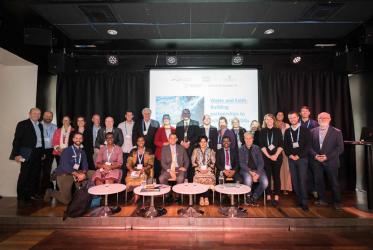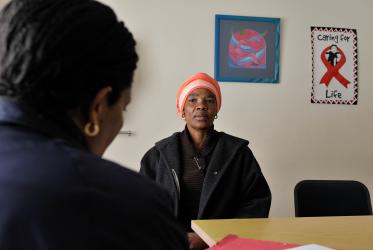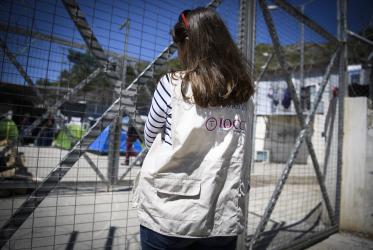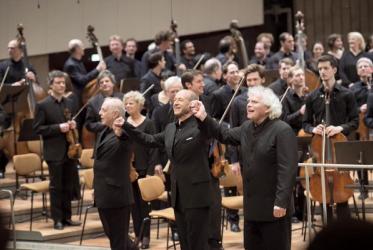Displaying 101 - 120 of 156
Gender-based violence concerns ‘all of humanity’
11 July 2017
A voice for peace from Down Under
10 July 2017
G7 must address famine
22 May 2017
WCC Blue Community implements water changes in the Ecumenical Centre
16 February 2017
Plans for 2017 decided by WCC Executive Committee
01 December 2016
WCC Executive Committee issues statement on climate justice
25 November 2016
Local work by faith-based groups key to ending AIDS
27 June 2016
Winners of WCC photo contest announced
09 May 2016
Refugees in Berlin get dose of culture
10 March 2016














